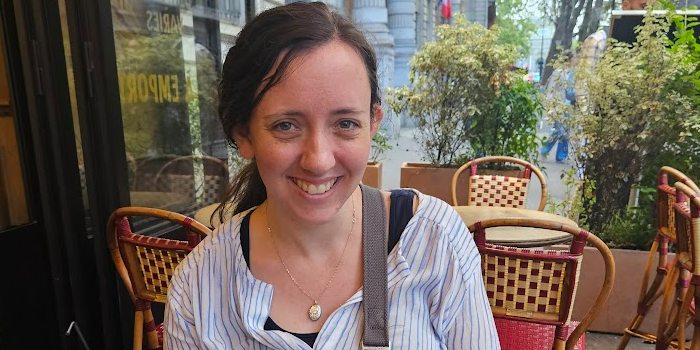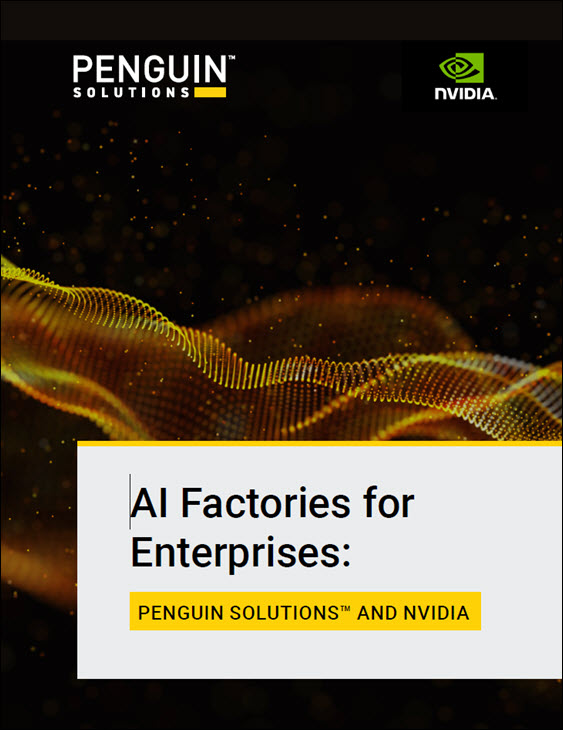
Bethany Lusch of the Argonne Leadership Computing Facility
With this profile of Argonne’s Bethany Lusch, insideHPC begins a new series called The Vanguards, intended to spotlight up-and-coming thought leaders, creative thinkers and innovators in HPC-AI, in scientific and technical computing. These exceptional contributors to the world of HPC-AI are helping blaze new trails, drive change and take on significant leadership positions. They serve as role models, inspiring and motivating others while pushing the boundaries of discovery and technological innovation.
They demonstrate the potential to become HPC-AI leaders of tomorrow.
The term “vanguard” originally comes from a military context, referring to the foremost part of an advancing army. Over time, it has been embraced in various other domains to describe those at the forefront of any movement, trend, or field.
The insideHPC Vanguards have been chosen from a pool of more than 100 nominees representing diverse disciplines across scientific and technical computing. These nominees come from government labs, industrial organizations, technology companies and academic institutions worldwide. The category also includes entrepreneurs introducing groundbreaking technologies or implementing cutting-edge business strategies.
We welcome nominees for this recognition. Please contact us at news@insideHPC.com and be sure to include the phrase “Vanguard Nominee” in your email subject line.
insideHPC Vanguard: Bethany Lusch — Toward ‘Careful, Correct, Impactful Scientific Results’
In 2016, Bethany Lusch earned her PhD in applied mathematics from the University of Washington in Seattle. During her PhD. candidacy, she initially worked on optimization problems relevant to clustering and was first exposed to machine learning. Later, she applied her ML knowledge to problems in dynamical systems in various science domains.
She stepped into the field of HPC in 2018 when she joined Argonne National Laboratory as an Assistant Computer Scientist. She enjoys the challenge of dissecting problems, and collaborating with colleagues to bring meaningful, impactful scientific results.
Congratulations to Bethany Lusch on her recognition as an HPC-AI Vanguard!
Bethany, what was your first involvement in HPC or AI?
In 2012, as an applied math PhD. student at the University of Washington in Seattle, I joined Professor Jeff Bilmes’ research group in the Electrical and Computer Engineering department to work on discrete optimization. I started working on an optimization problem relevant to clustering, and most of his other students were working on machine learning, so I was quickly exposed to the field. I was intrigued and began taking courses like statistical learning. I later joined Professor Nathan Kutz’s group in the Applied Math department as he was starting to work more on data-driven methods for traditional applied math problems. We applied machine learning to problems in dynamical systems in a variety of science domains. Then my first experience with HPC was in 2018, when I started working at Argonne as an Assistant Computer Scientist.
What is your passion related to your career path?
I love creative problem solving, helping people, and working on important problems. I enjoy that I am able to contribute to scientific research in a variety of fields.
Share with us an event you’ve been involved with that brought about an advance, a new insight, an innovation, a step forward in computer science or scientific research. This could be an example of an episode in your career that (so far) you’re particularly proud of.
Do you prefer working as an individual contributor or a team leader?
I currently prefer working as an individual contributor because I want to get into the details of a problem and puzzle it out.
Who or what has influenced you the most to help you advance your career path in this advanced computing community?
My PhD. adviser, Nathan Kutz, is incredibly enthusiastic and supportive. I would come to him feeling stuck and frustrated and leave feeling relieved after he would reinterpret what I considered a research failure as progress and a learning experience.
What are your thoughts on how we, the nation, build a stronger and deeper pipeline of talented and passionate HPC and AI professionals?
If people only hear about AI from HPC professionals, they might get the impression that modern AI is entirely about foundation models and that they only need to learn how to scale transformers. However, I think there are a lot of interesting things to learn from the broader AI, machine learning, and data science communities, like how to carefully define a problem so that the result is useful and how to make sure that datasets are relevant.
What does it take to be an effective leader in HPC and AI?
Nobody can be an expert on every piece required for HPC and AI, so effective leaders need to be humble and know where to send questions.
What is the biggest challenge you face in your current role?
I get excited about a lot of projects and it’s hard to balance them!
What changes do you see for the HPC / AI community in the next 5-10 years, and how do you see your own skills evolving during this time frame?
I think (and hope) that there will be much more focus on the energy cost of HPC and AI. Running buggy code in a rush before a deadline can very quickly map to far more CO2 emissions than many international flights. I hope we can focus more on careful, correct, impactful scientific results and less on showing off sizes of runs. I also hope to learn more about what is possible on the application side to trade off time-to-solution and energy-to-solution.
Do you believe science drives technology or technology drives science?
In general, the answer is certainly both. However, if we zoom in to HPC hardware, I am seeing frustration that science is too small of a market segment to impact some of the technology that we need.
Would you like to share anything about your personal life?
I like strategy and logic games and reading mystery books. Relatedly, I enjoy genealogy research.




Speak Your Mind